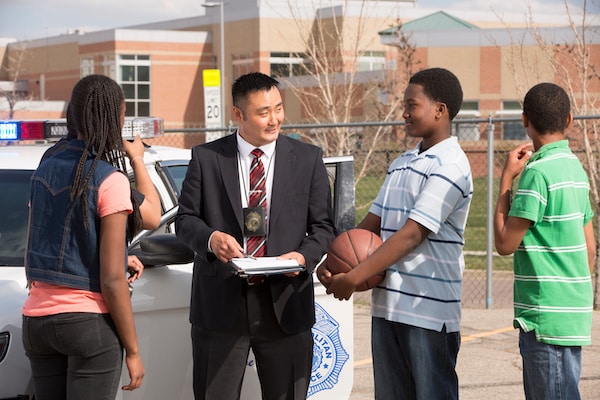Signs & Symptoms of Autism
Signs and Symptoms of Autism Spectrum Disorder
Autism spectrum disorder (ASD) is a developmental disability caused by differences in the brain. People with ASD often have problems with social communication and interaction, and restricted or repetitive behaviors or interests. People with ASD may also have different ways of learning, moving, or paying attention. It is important to note that some people without ASD might also have some of these symptoms. But for people with ASD, these characteristics can make life very challenging.
Social Communication and Interaction Skills
Social communication and interaction skills can be challenging for people with ASD.
Examples of social communication and social interaction characteristics related to ASD can include:
- Avoids or does not keep eye contact
- Does not respond to name by 9 months of age
- Does not show facial expressions like happy, sad, angry, and surprised by 9 months of age
- Does not play simple interactive games like pat-a-cake by 12 months of age
- Uses few or no gestures by 12 months of age (for example, does not wave goodbye)
- Does not share interests with others by 15 months of age (for example, shows you an object that they like)
- Does not point to show you something interesting by 18 months of age
- Does not notice when others are hurt or upset by 24 months of age
- Does not notice other children and join them in play by 36 months of age
- Does not pretend to be something else, like a teacher or superhero, during play by 48 months of age
- Does not sing, dance, or act for you by 60 months of age
Restricted or Repetitive Behaviors or Interests
People with ASD have behaviors or interests that can seem unusual. These behaviors or interests set ASD apart from conditions defined by problems with social communication and interaction only.
Examples of restricted or repetitive behaviors and interests related to ASD can include:
- Lines up toys or other objects and gets upset when order is changed
- Repeats words or phrases over and over (called echolalia)
- Plays with toys the same way every time
- Is focused on parts of objects (for example, wheels)
- Gets upset by minor changes
- Has obsessive interests
- Must follow certain routines
- Flaps hands, rocks body, or spins self in circles
- Has unusual reactions to the way things sound, smell, taste, look, or feel
Other Characteristics
Most people with ASD have other related characteristics. These might include
- Delayed language skills
- Delayed movement skills
- Delayed cognitive or learning skills
- Hyperactive, impulsive, and/or inattentive behavior
- Epilepsy or seizure disorder
- Unusual eating and sleeping habits
- Gastrointestinal issues (for example, constipation)
- Unusual mood or emotional reactions
- Anxiety, stress, or excessive worry
- Lack of fear or more fear than expected
It is important to note that children with ASD may not have all or any of the behaviors listed as examples here.
Our Blog
Latest News & Resources

Enhancing Safety and Understanding: Navigating Interactions Between Autism and Law Enforcement
Encounters between individuals with autism and law enforcement can sometimes lead to misunderstandings and distressing experiences. According to the International Board for Credentialing and Continuing Education Standards (IBCCES), individuals with autism are five...

The Impact of Missed ABA Sessions: Strategies to Stay on Course
For families with children on the autism spectrum, Applied Behavior Analysis (ABA) therapy is often a cornerstone of their treatment plan. ABA therapy utilizes evidence-based techniques to improve behaviors and teach new skills crucial for daily life. However,...
Understanding the Autism Treatment Evaluation Checklist (ATEC)
Autism spectrum disorder (ASD) is a developmental disorder characterized by challenges with social interaction, communication, and by restricted and repetitive behavior. Recognizing the need for effective tools to evaluate and measure the effectiveness of autism...
Navigating the Job Market: A Guide for Autistic Individuals in Indiana
Finding a job can be a daunting task for anyone, but for individuals on the autism spectrum, it can present unique challenges and considerations. However, with the right strategies and resources, autistic individuals can successfully navigate the job market in Indiana...
Exploring the Advantages of Center-Based ABA Therapy Versus In-Home ABA
Applied Behavior Analysis (ABA) therapy stands as a cornerstone in the treatment of autism spectrum disorder (ASD) and other developmental disabilities, offering invaluable support to individuals and their families. When considering ABA therapy, families often...
The Power of Play: Benefits of Physical Activity for Children and Young Adults with Autism
Physical activity is a universal need for all individuals, regardless of age or ability. For children and young adults with autism spectrum disorder (ASD), engaging in regular physical activities can bring about a plethora of benefits that extend beyond physical...
Questions about insurance ?
We support our clients with a dedicated insurance team member within our company — that has years of experience in managed care contracting, coding, authorizations and billing issues. We are your advocate and partner in maximizing the potential benefits of your insurance coverage.
